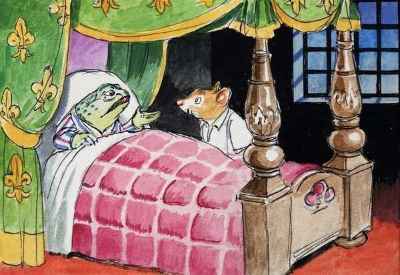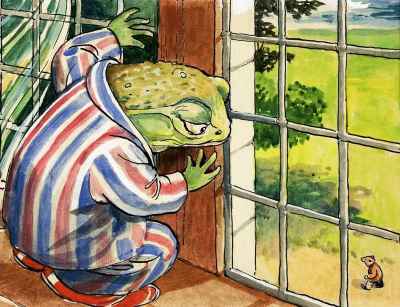Questioned during his libel trial, on 3rd April 1895, Oscar Wilde's fortunes dipped as his rapier wit foundered in that solemn forum with rather inappropriately flippant responses to questions which included his comment about Walter Grainger and an answer to a question asking why he gave a blackmailer 10 shillings.
"Q: May I ask why you gave this man, who you knew was a notorious blackmailer, ten shillings?
A: I gave it out of contempt.
Q: Then the way you show your contempt is by paying ten shillings?
A: Yes, very often."
Today, in an extraordinary day in the House of Commons, Mr. Speaker reflected concern that relations between the Legislature and the Executive may have strayed close to an equivalent flippancy on the part of the Executive.
This concerns the provision to the Select Committee on Exiting the European Union of the full Brexit Impact Assessments - requested by the House on 1st November 2017 - which had been offered only in edited form. This after a three-hour debate in a Motion ruled by Mr. Speaker to be binding on the Government.
An additional disappointment was the Secretary of State for Exiting the European Union not appearing in person, as might have been anticipated, to answer an Urgent Question on his brief laid down by the Opposition.
The Secretary of State was, no doubt, occupied with pressing affairs of State* and so his absence from the House today to address the Opposition’s Urgent Question can easily be accepted.
(*Indeed it that appears that Mr. Davis was in the thick of it at the time - negotiating the UK's 'divorce bill' with his EU counterparts).
However any trace of flippancy in recognizing the building concern within the House may begin to make the documents sought by parliament take on the colour of Wilde’s ten shillings.
The House has concerns that the Government, by submitting information subject to editing, has not adequately met the expectations of the House manifest in the Motion of 1st November and that the Government may, consequently, be in contempt as detailed on p. 273 of Erskine May (as the SNP’s spokesman, Peter Wishart, MP for Perth and N Perthshire, pointed out).
Mr. Speaker has informed the House that Members wishing to allege a Contempt or Breach of Privilege should, in the first instance, raise it by writing to him as soon as practicable. He then decides whether or not the matter should have precedence.
Mr Bercow, growing in constitutional stature in shepherding this matter will, no doubt, position such a request prominently in light of the Select Committee securing an urgent audience with the Secretary of State.
Indeed Mr. Speaker explicitly stated, subsequently, that nothing was as important as respecting the will of the House.
Brexit Minister Robin Walker, responding for the Government, reassured the House that the analysis requested by the House included some confidential and commercially-sensitive information that had to remain private. John Whittingdale (Con) Maldon was worried that leaks could result from the documents passed to the two Select Committees or the devolved administrations who also have copies.
Joanna Cherry (SNP) MP for Edinburgh South West queried the existence of any information relevant to the Scottish economy within the documents the Government had provided. Wera Hobhouse (LD) MP for Bath, a member of the Select Committee, felt that the implication of the Select Committee not being afforded unedited disclosure was that its members could not be trusted to act in the national interest. Mr. Walker believed that was not the case.
That may, however, have effectively been expressing reassurance about information that had already been safeguarded/withheld through the editing process in any event.
Iain Duncan-Smith (Con) MP for Chingford and Woodford Green, a keen supporter of the UK’s exit from the European Union added to the Minister’s script in noting that the UK’s negotiating position might be undermined if all confidential information within the documents is made available – asking what specific information had not been included that was wished for.
That does seem to be a little difficult to answer as it would seem to require knowledge of the unknown.
Peter Bone (Con) MP for Wellingborough, a pro-Exit MP whose contributions have very largely been remarkable for their measured, constructive and conciliatory tones, offered a helpful suggestion that the two rather irreconcilable Motions - relating to, first, the release of all the information and second, a non-binding Motion seeking to prevent the Government’s negotiating position being harmed by full disclosure – might be reconciled with a fresh Government Motion.
Indeed Jacob Rees-Mogg (Con) N E Somerset, spoke earnestly in support of Parliamentary sovereignty noting that only the Motion requiring disclosure was binding.

"...then I would beg you - for the last time, probably - to step round to the village as quickly as possible - even now it may be too late - and fetch the doctor ...would you mind at the same time asking the lawyer to step up? ...A lawyer! O, he must be really bad! the affrighted Rat said to himself" (The Wind in the Willows, Chapter Six, Mr Toad)
Marcus Fysh (Con) MP for Yeovil quoted p. 201 of Erskine May on Ministerial Accountability to draw Mr. Speaker’s attention about disclosing information and the public interest. Mr. Speaker reassured Mr. Fysh that he was aware of process in this field.
There therefore emerged themes expressing concern over the consequences of full disclosure and favouring a new Government Motion from Brexiteers; which is interesting in itself.

"Now you look out Rat! When Toad's quiet and submissive, and playing at being the hero of a Sunday-school prize, then he's at his artfullest. There's sure to be something up." (Badger's advice to Ratty, Chapter Six, Mr Toad).
Expect a revised Government Motion - no doubt only coincidentally addressing the concerns of ardent Brexiteers - on what can and cannot be disclosed - shortly therefore.
Interestingly, Mr Duncan Smith asked Mr. Speaker if a fresh Government Motion might negate any question of Contempt attaching to the present Motion requiring full disclosure of Brexit assessment information.
The picture is something like the efforts of Badger, Mole and Ratty (here representing the legislature) to persuade the errant Mr. Toad (here the executive, spurred by some enthusiastic quarters of the Government benches keen to ensure that the Article 50 process is not derailed) to moderate Mr. Toad's recalcitrant stance.
Of course Mr Toad was able to escape from constraint with a clever ruse, some knotted bed sheets and a convenient open window.
This all seems to reflect an emerging Cold War within the House of Commons where the first skirmish – any scope for an allegation of Contempt coming to fruition - is likely to be diffused by the Secretary of State demonstrating some contrition and humility before the Select Committee and allowing access to the information requested on the 1st November with some new consensual conditions.
The likely condition for full disclosure was identified by Barry Sheerman (Lab Coop) Huddersfield who suggested following established practice affording the Committee Chair, Hilary Benn, full disclosure; with discretion to filter the information as the Chair sees fit.
Those favouring EU exit appear to be rather conspicuous in their apparent calm and seemingly orchestrated contributions. That might possibly suggest that there is something damaging to the cause of those who favour a 'hard Brexit' in the redacted material.
But this parliamentary Cold War will be subtle and sophisticated – fought with the ink of revised Motions and countered by the pressure of threatened Contempt.
Kenneth Clarke (Con) MP for Rushcliffe warned that the Government “could not [by qualifying or editing the documents without amendment on 1st November], post-Brexit , start reducing parliamentary sovereignty”.
Indeed as the debate closed with Points of Order, Ken Clarke suggested that the Government’s novel abeyance of voting on Opposition Motions was turning the House into a debating chamber without parliamentary accountability.
The Government should be accountable to all its responsibilities to the House said Mr. Clarke. Mr Speaker agreed that the Government’s approach had not been helpful.
Two amendments seem to have been required; by Oscar Wilde and the present Government.
Oscar Wilde’s eloquent address was not sufficiently humble and lacked the common touch.
The Humble Address lacked sufficient eloquence and the Government's touch is driving the Commons wild.
Comments
Much Ado about the Emperor's New Clothes
James Hacker: "Are you telling me the Foreign Office is keeping something from me?"
Bernard Woolley: "Yes."
James Hacker: "Well, what?"
Bernard Woolley: "I don't know; they're keeping it from me too."
James Hacker: "How do you know?"
Bernard Woolley: "I don't know."
James Hacker: "You just said the Foreign Office was keeping something from me. How do you know if you don't know?"
Bernard Woolley: "I don't know specifically what, Prime Minister, but I do know the Foreign Office always keep everything from everybody. It's normal practice."
Yes Prime Minister, A Victory for Democracy, 1986
An 11:8 decision in the House of Commons' Committee for Exiting the European Union this afternoon means that David Davis will not face parliamentary proceedings for contempt.
And with the impact assessments on Brexit not actually existing it now appears that the diligent government efforts to withhold the information that (now, it seems) didn't exist were all superfluous.
It seems that, like the Emperor's new clothes, the remarkable materials were made of an illusory fabric.
It would, after all, have been a bit odd to have been held in contempt for not disclosing something that didn't exist.
Was this inevitable?
Perhaps an inevitable consequence of the strains under which Parliament is sailing through stormy constitutional waters with the Government having its hands firmly on the tiller and timetable straining against an unsettled crew of many factions seeking to break into the map room to gain a better picture of the course ahead.
The Speaker has announced that he is satisfied that there is an arguable case that it may be a contempt of Parliament for the Government (or more pointedly perhaps the Attorney General) to refuse to disclose the Attorney General's full legal advice regarding the Brexit agreement.
It appears that there will be a debate and vote in Parliament tomorrow to refer the matter to the Committee on Privileges which will investigate the matter and give a report with conclusions that it will return to the Commons.
The link below provides a useful overview:
https://www.theguardian.com/politics/2018/dec/03/brexit-legal-advice-and-contempt-of-parliament-explainer
New comment
That's the third instance I have read or heard about of a party in power preventing democratic process within 12 hours. They are arguing about it on the radio right now where Lancashire County Council are bringing in parking fees and bus line fines to raise £77m per year but refused to allow it to be discussed by the opposition, nor allow them to present a petition. When they objected, the microphones were switched off.
(The other was in the House of Representatives across the herring pond where the microphones and cameras were switched off to prevent a pro-gun control debate.)
How did we allow this to happen? When the people in power are not answerable to the elected representatives, it is autocracy.